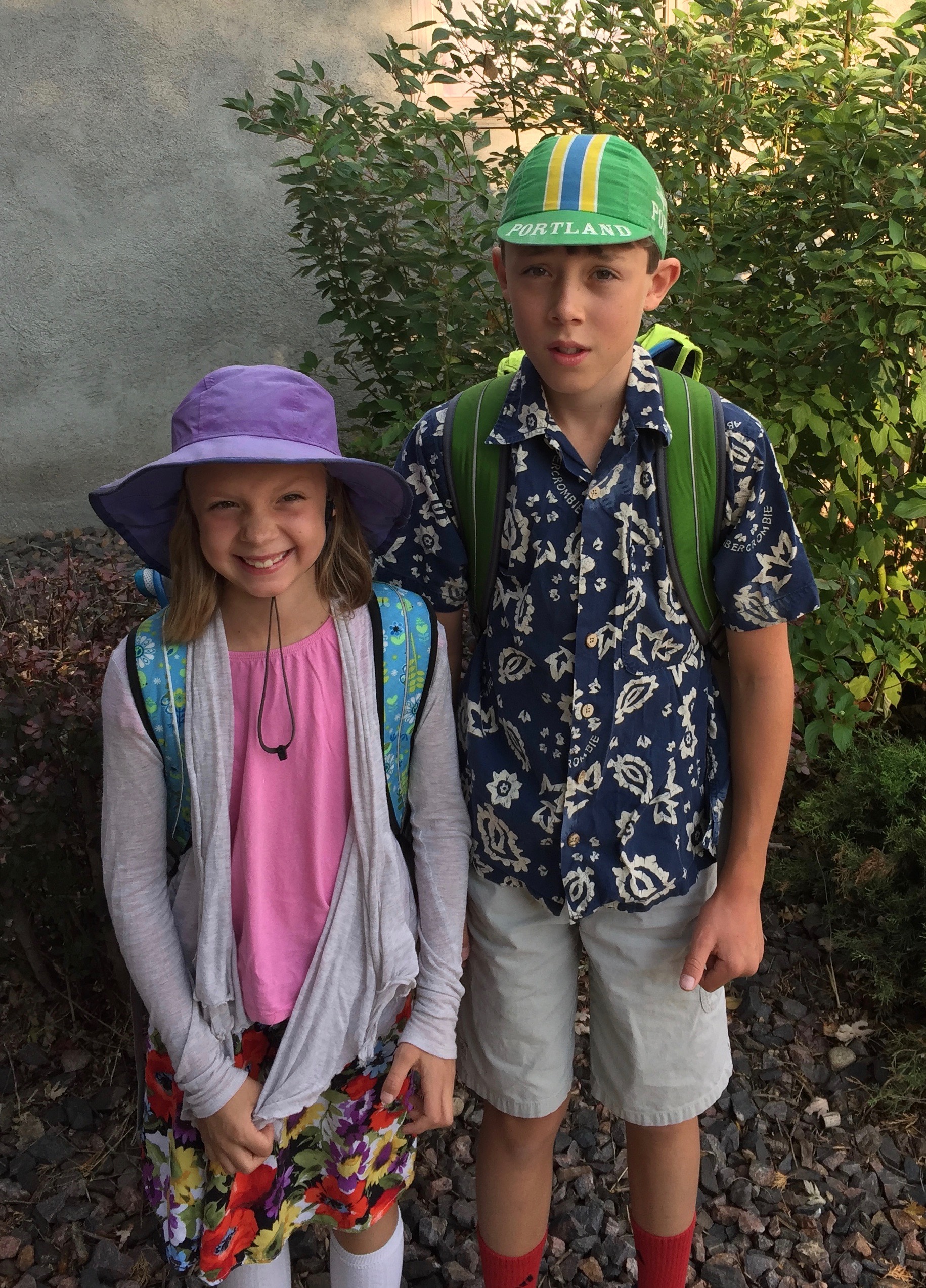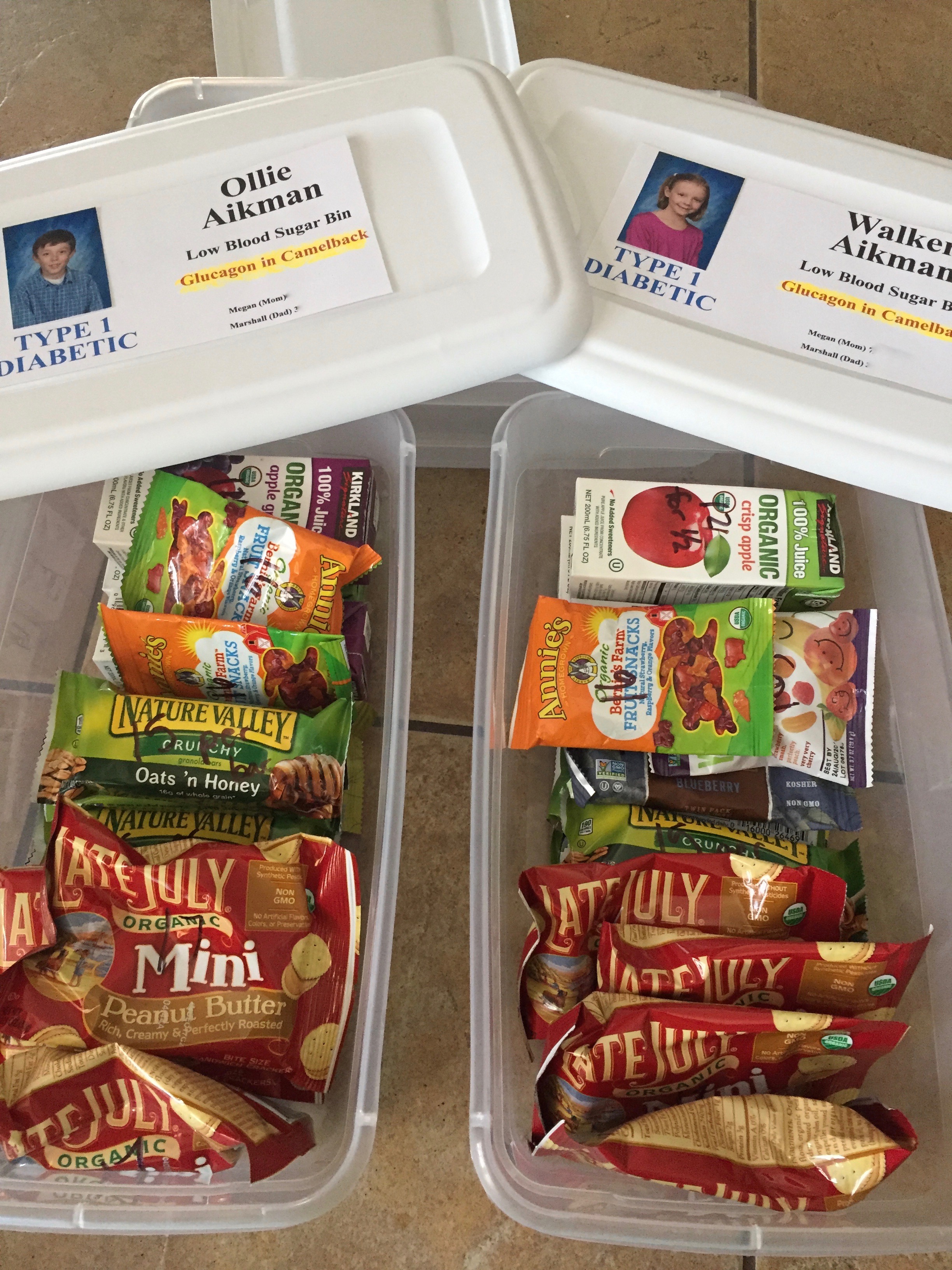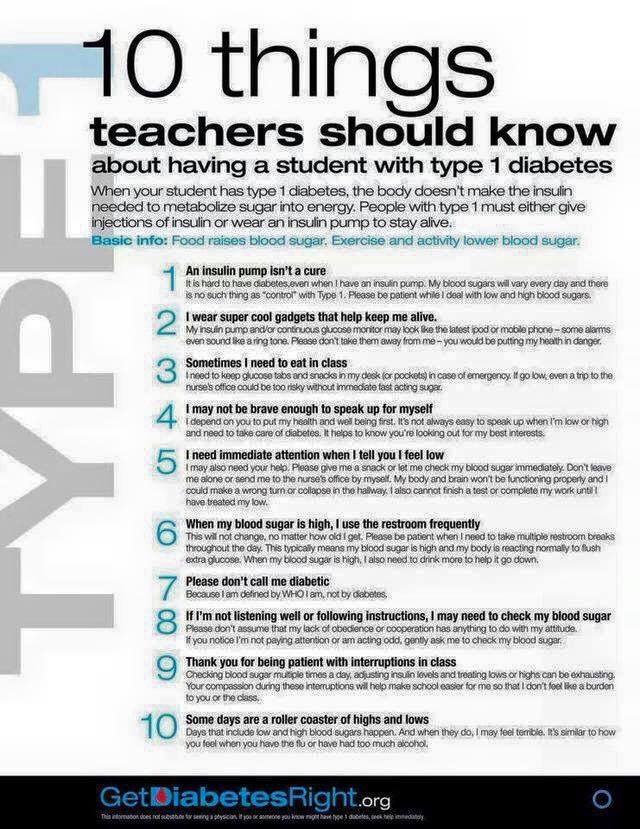How we do Back To School
It's that time of year again, when we tell ourselves summer was much too short and our days shift from relaxing to regimented; it's time to go back to school. This year Ollie will be a 5th grader, Walker will be in 3rd, and I will be starting my 4th year of teaching. Diabetes or no diabetes every family has their list of things to do to prepare for this momentous occasion. I remember as a kid loving my trips to the city to shop for school clothes and supplies. I reveled in the routine of it all.
I still need my routine to prepare myself, because without it I fear something, or someone, might slip through the cracks. Our family has a lot to do to prepare for "back to school". We have everything a non-T1D family has, like clothes shopping and lunchbox cleaning, but we also have a list a mile long of medical prep to complete.
Our kids attend a public Waldorf school. Besides many other things this means that the kids' teachers stay with them from 1st grade through 5th. For their diabetes care this is a wonderful thing and something we don't have to worry about that other T1D families have to navigate yearly. There's no need to educate the teacher on Type 1, as they already know the kids and their medical needs. This also means they know their quirks, and are beginning to innately know when something is "off". This is a beautiful thing and an aspect of caring for T1Ds that often goes undervalued and overlooked by schools. It's something you can't learn from a 30 min medical safety meeting, or sign off on a district medical waiver.
We do, however, still have to fill out pages of medical forms for the school and district. This is a safety measure, for both the kids and the school. Think your vaccination form is an annoyance to fill out? The kids' doctor needs to fill out a DMMP (Diabetes Medical Management Plan) for each of the kids, which then gets used to further complete a 504 for both children. A 504 plan is something I strongly urge any child with Type 1 to have in place. This is a legal document that makes crystal clear the needs for your specific child, and ensures modifications and accommodations be met to keep your T1D safe and their learning environment what it needs to be in order for your kid to get the same level of education that a non-T1D gets. Type 1 diabetes is considered a disability under the Americans with Disabilities Act, and under that law any public school needs to follow the rules to grant access to all students regardless of medical needs or abilities. For my kids these accommodations range anywhere from "has free access to water, food, and bathroom breaks" to "may postpone testing and evaluations until blood sugars are within a specified range". Each year we modify the plan to meet the demands and changes of each grade. Since pulling together their first 504 years ago we only now have to make minor amendments each year. Thankfully the kids' clinic aide is also the 504 coordinator at the school, so it's a really smooth process. We still have to meet annually with the kids' teachers, administrators, district nurse, and clinic aides to discuss the plan and any changes so that all are in agreement of the kids' needs.
With the legal paperwork in place we can feel confident all are aware of what needs to be done for the kids. But that's just paperwork. I, as do most Type 1 families, bring supplies to be left at school and leave emergency bins which are strategically placed throughout the school. In the clinic office I place a backup vial of insulin, pump supplies, syringes (in case of a pump malfunction), ketone testing strips, a backup glucometer and test strips, glucagon, and emergency sugars. A bin is also stashed in each of their classrooms containing juice, gummy candies, peanut butter packets, and granola bars.
I have also compiled a letter for each teacher's sub-file. This has a large picture of the kids, with a bullet point list outlining things to be aware of and how to get ahold of the clinic aides, me, or their dad. Their teachers have been wonderful to be sure to alert their subs as well, and on days when a teacher is absent our wonderful clinic aides take extra notice of the kids' needs.
In addition to the prep we need to do for the day-to-day, Marshall and I also need to plan out the calendar for the year. We need to know about field trips in as far advance as possible so that we can clear our schedules and chaperone. Technically, as the school nurse and aides always remind us, this isn't necessary. Technically, because the kids attend a public school, the school is responsible for finding a medical chaperone to assist the kids when they leave campus. It's stated in their 504 plan that there always needs to be a trained adult, other than the primary teacher, who is able to care for the kids in an emergency. Marshall and I feel that the clinic aides already do so much for the kids in addition to their million other duties at the school. Marshall and I have a flexible-enough schedule that we're able to support the kids on their class adventures. Many times this includes overnight camping trips, which takes on a whole new level of care that I wouldn't expect an aide to tackle. Marshall and I agree that it takes a village to care for our T1Ds, and we try to relieve the school of some of that work whenever we can. The time will come when the kids won't want their annoying parents to tag along, or *gasp* they'll want to manage their own care, and when that day comes we'll deal. Until then, we're happy for the opportunity to be with the kids. As the kids get older it only becomes more glaringly evident that this window of time is too short.
And as the kids grow, we do try to encourage them to shoulder some of the responsibility of their care. We do this in ways to empower them, and when we feel they're ready and have demonstrated the maturity, and only if it's not too overwhelming. Diabetes burnout is a very real, and potentially very dangerous, condition. My babies will have to care for their diabetes long after they've left our nest, and we want this to be a gentle transition and one that builds their confidence so that they can be successful their whole lives. Each year we give more tasks to the kids to be in control of, still with adult supervision, but empowering tasks nonetheless. From the first days of diagnosis they have been responsible for carrying their own emergency supplies while on the playground. We've tried to make this as easy as possible for them, and have found a low-profile camelback to be the perfect fit; it carries their glucometer, emergency fast-acting sugar, glucagon, extra batteries, and water. I also appreciate that it serves as a visual reminder to other teachers of their medical needs. It's so easy to see them running around with the other kids and forget that they have diabetes. But Ollie's fluorescent yellow (totally his choosing) and Walker's teal pack are a quick trigger that these kids require an extra set of eyes on them. These packs stay with them at all times, and hang on their chairs while they're in class. They know any time they leave the class, or during fire drills or lockdown drills, to immediately put the pack on their back. We never want them to be caught unprepared for a low, regardless of the circumstances of their surroundings.
As I said, we try to make this delegation of responsibilities empowering and fun. When they get tasked with a new job they often take it very seriously because they're fully aware of just how important it is that they do it well. They already manipulate their own pumps at bolus time, and can dose themselves corrections when we instruct them to do so. This year Walker has been working at adding her own carbs, and telling us the total, before dosing her insulin at mealtimes. We're working at teaching Ollie how to count and estimate carbs, and which foods have a high or low glycemic index; this is crucial for more accurate meal blousing, especially for an active kid like Ollie. We work on these skills during the summer so that when school starts we can send the kids with a new responsibility to start of the year. It's their version of wearing a new pair of sneakers to the first day of school.
The final element of back to school preparedness lies fully on me. I have to get myself ready to let these kids go. Most parents, by the beginning of August, are saying "dear God, someone take these wild hellions off my hands". We've seen the memes and watched the viral video of the mom shopping target and thanking teachers for taking her kids. But not me. The control-freak in me finds it very difficult to hand my children over in mid-August. I know they're safe. I know their clinic aides would walk over hot coals for them. I know they're smart and responsible and will speak up if they think something isn't right. But I still worry. I suppose this is my version of empowerment. Because one day I will be stripped of the responsibility of caring for them, and while it's important for them to be slowly tasked with this job, I too need to be slowly weaned of it. The idea of dropping my kid off at his college dorm seems like a terrifying notion, but hopefully by 2026 I'll be ready.










